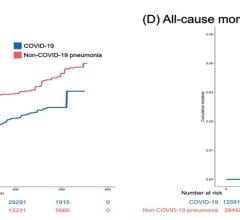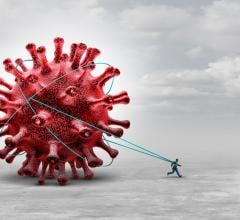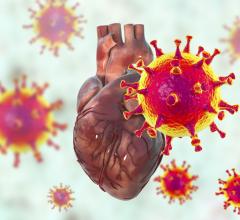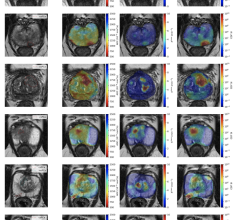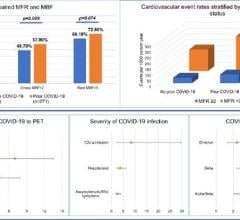
The new AHA resuscitation guidelines now call for full PPE before performing CPR to reduce the transmission of the more easily transmissible omicron and delta COVID variants.
January 24, 2022 — In response to the COVID-19 pandemic, particularly the Delta and Omicron variants, new American Heart Association (AHA) guidance states personal protective equipment (PPE), including respirators, gowns, gloves and eye protection, is now recommended before starting cardiopulmonary resuscitation (CPR) on any patients.
The updated “2022 Interim Guidance to Health Care Professionals for Basic and Advanced Cardiac Life Support in Adults, Children, and Neonates With Suspected or Confirmed COVID-19,” was published today in the AHA journal Circulation: Cardiovascular Quality and Outcomes.[1] It addresses the emergence of COVID-19 variants that are more transmissible than previous strains.
The AHA collaborated with several organizations in developing the new guidance, including the American Academy of Pediatrics, the American Association for Respiratory Care, the Society of Critical Care Anesthesiologists and the American Society of Anesthesiologists, continue to provide interim guidance to address the latest scientific research related to the SARS-CoV-2 virus.
The guidelines state in the event initial responders are not already wearing appropriate PPE, they should immediately put on PPE and then begin CPR. As the science surrounding COVID-19 and variants evolves, the AHA said healthcare professionals should continue to follow the most-up-to-date recommendations from the Centers for Disease Control and Prevention (CDC) and World Health Organization (WHO) and their regional health authorities and local institutions.
“Healthcare professionals are paramount to the health of communities around the world, especially during a pandemic, and they should be protected while performing health care procedures including resuscitation,” said Dianne Atkins, M.D., FAAP, volunteer chair of the American Heart Association Emergency Cardiovascular Care Committee, a pediatric cardiologist and lead author of the new interim guidance. “Protecting the health and safety of healthcare professionals remains critical and includes ensuring the recommended personal protective equipment is available and that health care professionals are trained to use it properly.”
The recent surge in new COVID cases spurred a reevaluation of the guidelines, as the newest strains that make up the vast majority of new COVID cases since mid-December are much more easily transmissible.
“Based on evolving epidemiology reports and emerging science, the volunteer committee comprised of more than 40 global resuscitation experts has issued new guidance for the resuscitation of patients with suspected or confirmed COVID-19,” said Comilla Sasson, M.D., Ph.D., FAHA, a practicing emergency medicine physician and vice president for science & innovation for emergency cardiovascular care at the American Heart Association. “This guidance also reflects the recommendations issued recently from both the World Health Organization (WHO) and the U.S. Centers for Disease Control and Prevention (CDC).”
Additional CDC and WHO Updates Included in the New COVID CPR Guidance
The new guidelines incorporate the most recent CDC and WHO guidance. This includes:
• All healthcare providers should wear a respirator (e.g., N95) along with other PPE (gown, gloves, and eye protection) for patients with suspected or confirmed COVID-19 infection, when performing aerosol-generating procedures (AGP)s or in a setting where such procedures are regularly performed. This includes wearing appropriate PPE (including a respirator) before performing the components of resuscitation that are aerosol-generating, which include but are not limited to chest compressions, defibrillation, bag-mask ventilation, intubation or positive-pressure ventilation.
• Reinforcing resuscitation best practices: Cardiac arrest survival rates have decreased dramatically during the COVID-19 pandemic.[2] Out of hospital cardiac arrest survival in 2020 also declined in regions/timeframes that did and did not have significant COVID infection rates. The reasons for this decline are both unclear and complex. Cardiac arrest survival is dependent on early initiation of CPR, including chest compressions as soon as it is safely possible. Patients with confirmed or suspected COVID-19 should receive the best resuscitative efforts possible.[2]
• Ensuring adequate PPE supply: At this time, all healthcare providers should be following appropriate precautions and should have access to PPE in all clinical settings, regardless of the potential of encountering resuscitation events. Effective use of PPE is critical for the safety of healthcare providers performing resuscitations. Healthcare organizations should continue to secure appropriate PPE as available, ensure training regarding appropriate application and use of PPE, reinforce effective use of PPE, and create systems so that healthcare providers have immediate access to appropriate PPE when emergency care is required.
As the COVID-19 pandemic persists and new variants arise, the American Heart Association with its collaborating professional organizations[3] said it will continue to provide the most up-to-date, evidence-based guidance on resuscitation and supporting the healthcare professionals that provide these life-saving procedures such as CPR.
Read the full guidance document
For more information: heart.org
References:
3. American Academy of Pediatrics, American Association for Respiratory Care, American Society of Anesthesiologists, and the Society of Critical Care Anesthesiologists

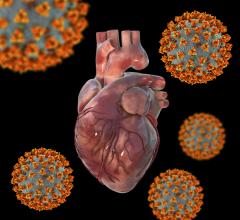
 March 20, 2024
March 20, 2024 

